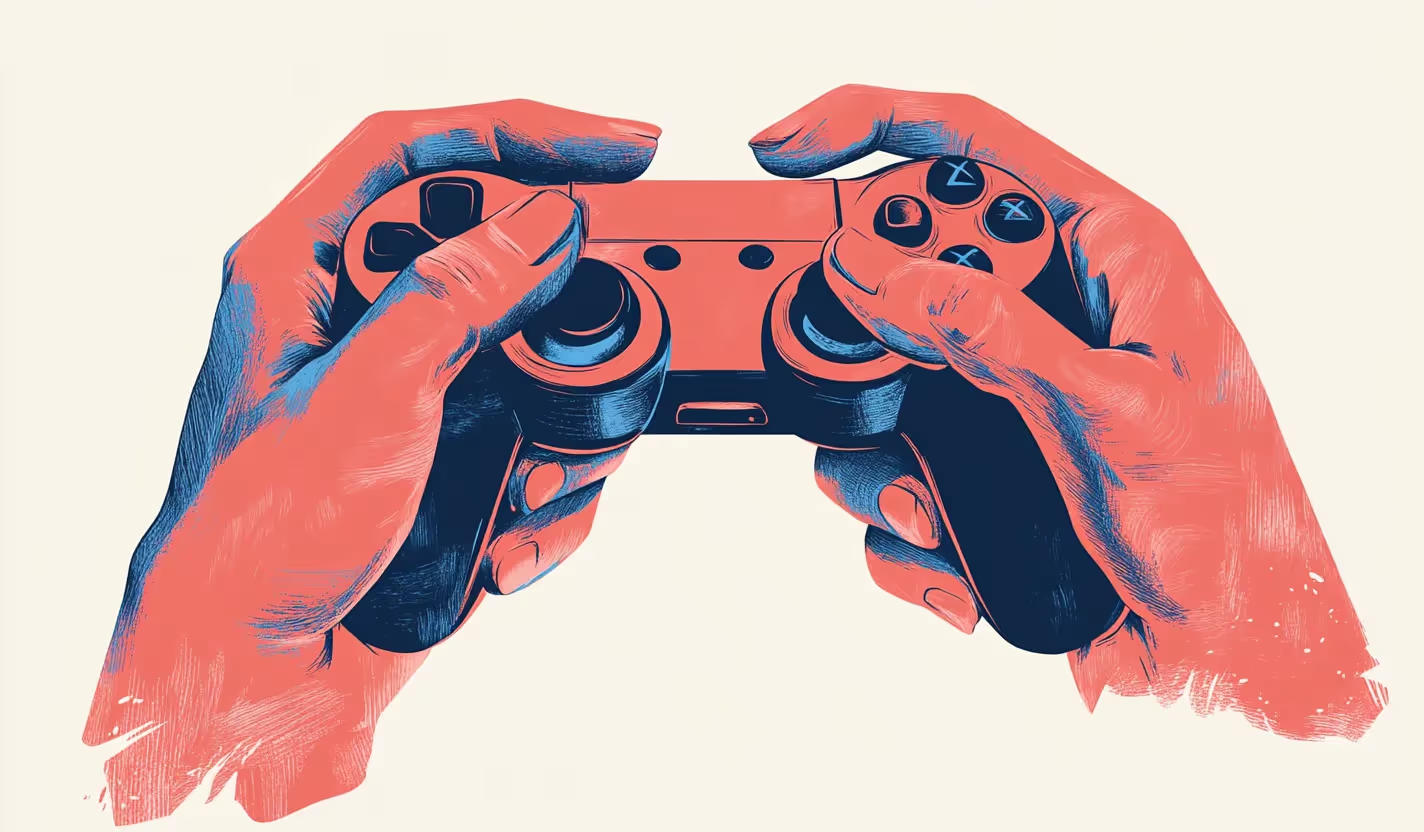Branding in the Gaming Industry: How Creating a Recognizable Image Shapes Successful Gaming Ecosystems
02/22/2025
Branding Strategy
In the competitive gaming industry, a strong and recognizable brand identity is key to building immersive ecosystems, fostering community loyalty, and standing out in a crowded market.

In the notably competitive gaming enterprise, developing a sturdy and recognizable brand image is critical for success. Gaming agencies that install themselves as leaders within the marketplace understand the energy of branding to draw and maintain game enthusiasts. In this article, we can discover how branding performs a pivotal feature in shaping a successful gaming ecosystem and the techniques utilized by gaming companies to create a protracted-lasting effect.
.png)


Building Identity and Recognition



Going Beyond Logos and Designs
Branding in the gaming industry goes beyond logos and designs; in many different forms, it is about growing an identity story that resonates with the target audience and marketplace. Successful gaming groups invest money in growing unique visible patterns and particular personal designs that become synonymous with their emblem. This identity lets game enthusiasts properly understand, hook up with, and support a particular endeavour or gaming corporation, most importantly to achieve more brand loyalty and persistent engagement.
The role of AAA game studios in branding
In the gaming industry, AAA game studios are widely recognized as industry leaders who consistently produce high-quality games with huge budgets and large development teams. One of the key factors contributing to the success of AAA game studios is their ability and focus to create and maintain a strong brand image. Let's take a look at an example of how AAA game studios use branding to set the bar for excellence in the gaming industry.
Setting the Bar for Excellence
AAA game studios have built a reputation for delivering top-notch gaming experiences, and branding plays a crucial role in creating and reinforcing this image of quality. These studios strategically align their logo and brand identity with high production values, cutting-edge technology, and immersive gameplay mechanics. By consistently delivering exceptional games, they cultivate a perception in the market that their studio, team, and logo or brand represents nothing but the best.
Consistency and Coherence
Consistency is key when it comes to branding in the gaming enterprise space. To create a recognizable image, gaming corporations make sure that their brand identity is constant across all touchpoints. From sports interfaces and promotional materials to social media presence, keeping a coherent brand emblem enables set-up points and creates more trust and familiarity with customers and players. This focus on consistency also extends to the tone and messaging utilized in marketing campaigns, reflecting the brand emblem's values and character.
Connecting with the Community
One example of the hallmarks and attributes of a hit gaming ecosystem is the business and team's ability to establish a strong reference point to the gaming network. Gaming companies leverage branding to create an experience of community and belonging. They actively engage and connect with players via social media, network boards, and occasions. By fostering a feeling of inclusivity, responsiveness, and transparency, gaming corporations earn the agreement and loyalty of their players, reinforcing their brand photograph.
Licensing and Merchandising
Branding within the gaming industry extends past the virtual world. Gaming organizations leverage their emblem popularity to expand licensing and merchandising possibilities. From garb and collectibles to themed events and partnerships, those projects no longer best generate additional revenue streams but also improve the logo's presence within the minds of gamers. By permitting gamers to exhibit their allegiance to a specific brand, licensing and merchandising in addition to toughening emblem loyalty.
3D Modeling: Revolutionizing Gaming Visuals












In the world of gaming, 3D modelling has emerged as a pivotal technology that has transformed the way games are visually designed, developed, and presented to players. The impact of the rise of 3D modelling in gaming cannot be overstated, as it has revolutionized the creation process of detailed environments, characters, and objects in games that immerse players in rich, visually stunning game worlds. There are multiple titles and even stats on the top 3D modelling companies in 2024.
Creating Realistic Game Worlds
One of the primary advantages of 3D modelling in gaming is its ability to create highly realistic game worlds. With access to the intricate details and textures that 3D modelling allows, game studios can design environments that closely resemble real-world locations or create entirely fantastical realms. This level of realism greatly enhances the immersion factor of games for players, making them feel like they are part of a living, breathing world and generally strengthening the overall gaming experience.
Adapting to Evolving Trends
In the unexpectedly evolving gaming enterprise, successful gaming groups apprehend the significance, importance and value of staying in tune with emerging business trends and generations. They continuously display the market, study player remarks, and adapt their branding and marketing strategies hence. This flexibility allows gaming companies to stay at the forefront of the business enterprise, making sure their brand photo resonates with the ever-changing possibilities of players.
Embracing Technological Advancements
One of the key elements of adapting to evolving traits within the gaming industry is maintaining a near eye on technological advancements. Gaming companies want to stay abreast of the latest innovations developed in hardware, software, and gaming systems.
By embracing new technologies, such as digital truth, augmented reality games, or cloud gaming, gaming companies can beautify the player experience and differentiate themselves from their competitors. They strategically incorporate those improvements into their game branding, packaging, and advertising efforts, showcasing how their video games leverage the modern generation to provide gamers with unique and immersive gaming reports.
Staying Ahead in a Dynamic Industry
Additionally, gaming corporations be aware of participant comments and alternatives. They actively pay attention and talk to their target audience, whether through social media channels, forums, or the form of customer surveys, to recognize their desires and expectations.
By reading these comments, gaming companies can identify tendencies and tailor their branding strategies. For instance, if players have a specific growing interest in cooperative play in gameplay reviews, a gaming agency may be aware of highlighting collaborative play functions and the multiplayer capability of their games.
This adaptability now developed not only enables gaming businesses to cater to player demands, but it additionally permits them to draw new audiences and enlarge their attainment.
Want to learn more about brand platforms, Brand Strategy and Brand Identity? Keep reading!
If you need help with your companies brand strategy and identity, contact us for a free custom quote.
Game Branding

Aligning with Cultural and Societal Trends
Furthermore, staying flexible through investment in branding manner know-how and adapting to changes in lifestyle and societal trends. Gaming brands and companies must be privy to shifts in player demographics, pursuits, and values. They take the time to align their brand messaging and imagery with current cultural developments and social troubles. By doing so, gaming brands and agencies can appeal to a much wider target market and demonstrate that they are now not just in tune with famous subcultures but also socially accountable entities.
Adapting to evolving traits additionally involves preserving a finger on the pulse of the gaming enterprise itself. Successful gaming companies intently comply with market trends, competitor techniques, and enterprise forecasts. This allows them to anticipate adjustments and plan ahead, ensuring they may be usually one step in advance of the sport.
By being proactive and ahead-questioning, gaming companies can perceive rising genre genres, new gameplay mechanics, or untapped business niches from scratch and roll their logos to capitalize on those opportunities from scratch.
Proactive Market Strategies
Branding is in the middle of successful gaming ecosystems, allowing gaming businesses to create a recognizable picture that resonates with players and unites them aside from the competition. By constructing identity and popularity, retaining consistency, connecting customers with assets across the network, increasing licensing and vending, and adapting to evolving developments, gaming agencies can shape a strong emblem presence that drives engagement, loyalty, and long-term fulfillment within the dynamic gaming industry. Read more about the role of the app’s branding in user engagement in our blog.
As the games industry continues to develop, branding will continue to be a crucial foundation element in support of constructing successful gaming ecosystems.
Frequently Asked Questions

Q1: What are some key features of successful gaming branding?
Successful gaming branding involves creating unique visual styles, maintaining consistency across all platforms, engaging with the gaming community, and leveraging licensing and merchandising opportunities. It also includes staying adaptable to evolving trends and technologies.
Q2: How do AAA game studios use branding to their advantage?
AAA game studios generally build a reputation for delivering high-quality gaming experiences. They align their logo and brand identity with high production values, cutting-edge technology, and immersive gameplay mechanics, creating a perception of excellence and reliability.

Sloane Avery
As entrepreneurs, they’ve built and scaled their own ventures from zero to millions. They’ve been in the trenches, navigating the chaos of high-growth phases, making the hard calls, and learning firsthand what actually moves the needle. That’s what makes us different—we don’t just “consult,” we know what it takes because we’ve done it ourselves.
Want to learn more about brand platform?
If you need help with your companies brand strategy and identity, contact us for a free custom quote.
We do great work. And get great results.
+2.3xIncrease in revenue YoY
+126%Increase in repurchase rate YoY








+93%Revenue growth in first 90 days
+144% Increase in attributed revenue








+91%Increase in conversion rate
+46%Increase in AOV








+200%Increase in conversion rate
+688%Increase in attributed revenue












